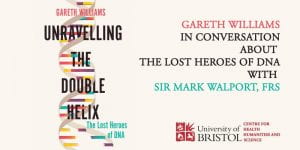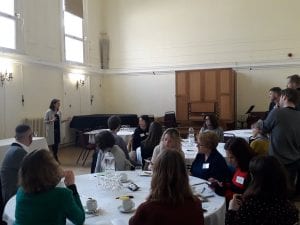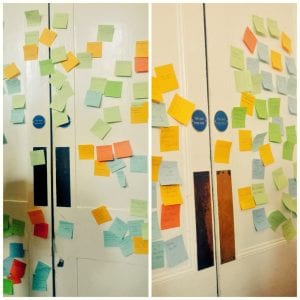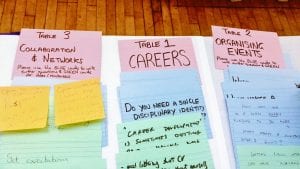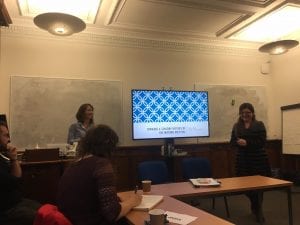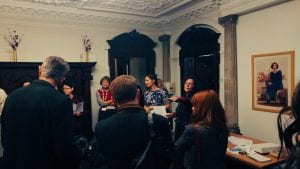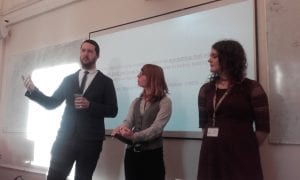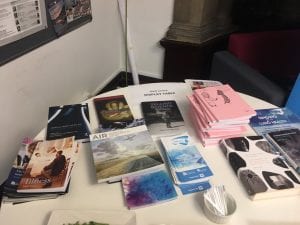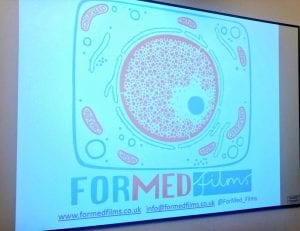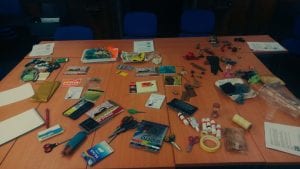On May 22nd we were joined by Professor Gareth Williams, who discussed his new book ‘Unravelling the Double Helix: the Lost Heroes of DNA’ with Sir Mark Walport, FRS.
DNA. The double helix; the blueprint of life; and, during the early 1950s, a baffling enigma that could win a Nobel Prize.
Everyone knows that James Watson and Francis Crick discovered the double helix. In fact, they clicked into place the last piece of a huge jigsaw puzzle that other researchers had assembled over decades.
In this talk, drawing on material from his book, Professor Gareth Williams told the story of that discovery in the round, highlighting some of its lost heroes, from those who first fought to prove that DNA was the stuff of genes, to later researchers like Maurice Wilkins (the ‘Third Man of DNA’) and Rosalind Franklin, famously demonised by Watson.
Discussing and unpacking this story with him was Sir Mark Walport, FRS, Chief Executive of UK Research and Innovation, and former Chief Scientific Advisor to the Government (2013–17) and Director of the Wellcome Trust (2003—13).
About the book: ‘This is a FANTASTIC book – the deep story of the discovery of DNA, starting in 1868, with a German doctor finding a new molecule contained in the nuclei of white blood cells… 5 chapters in, and this is already clamouring to be one of my fave science/history books of 2019′ — Professor Alice Roberts, Professor of Public Engagement in Science at University of Birmingham. ‘Truly Superb’, Matt Ridley, The Times.


